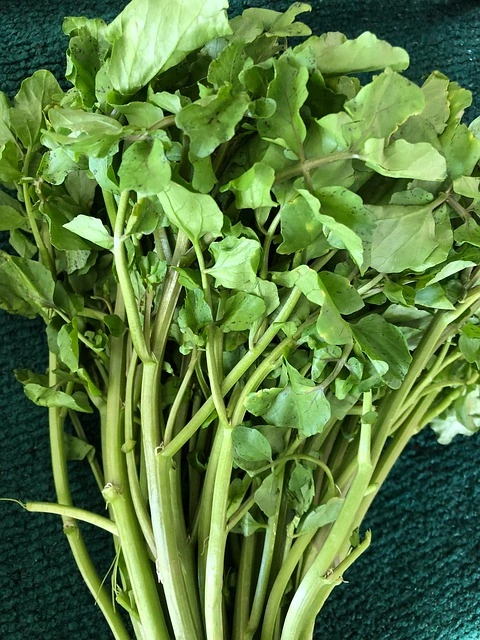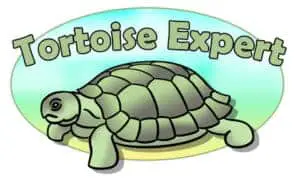
Watercress is one of the better types of plants that tortoises eat, so you can definitely offer it to your own pet tortoise. Although it is a great dietary component, it has to be offered in combination with other foods to form part of a healthy diet.
If like me you own a tortoise, you definitely want what’s best for it. You want to keep it happy, safe, and yes you’ll even want to spoil it from time to time as well.
‘Spoiling’ is often done through different foods – for example, some tortoises enjoy pieces of fresh fruit occasionally. But there are certain foods you’ll come across where it won’t immediately be obvious whether they are safe for tortoises or not.
Whether it seems obvious or not however, before you give them any type of food, you must first make sure it is not harmful.
Watercress is a great example of something that seems ideal, but of course there’s no obvious way of knowing if it actually is.
So, if you’ve thought about giving your tortoise some watercress, you may not know how safe this plant is.
We have the answer for you to eliminate your worries. Read on to find out more!
What Is Watercress?
Watercress is a native European and Asian plant – it is perennial and grows very fast. The plant is a dark leafy green that is often found growing in natural spring water. What’s interesting is that it is actually an ancient green, and for a very long time, it was used both as a garnish, and as a large part of a Roman soldiers’ diet. As such, it is one of the oldest leaf vegetables that we know of that people consumed and still consume to this day.
Watercress has quite a piquant, or sharp, tangy flavor. As such it is also related to other strong flavored plants like radish, mustard, wasabi, and garden cress. It is a member of the cabbage family Brassicaceae, just like broccoli, arugula, Brussels sprouts, and kale.
Although not exactly a ‘fashionable’ food, watercress is growing in popularity among an increasingly health conscious population thanks to the nutritional content it has.
Now of course with this in mind, it stands to reason that you might be wondering whether your pet tortoise can also consume this particular green safely, and if it’s just as nutritionally beneficial for them as it is for you or me.
Can Watercress Be Offered to Tortoises?
The good news is that watercress can be given to tortoises. It isn’t only a good plant for humans, but it can also help tortoises develop and stay healthy. This is all thanks to the many vitamins and minerals it contains. Some of the key nutritional components found in watercress are:
- Vitamin A
- Vitamin B-6
- Vitamin C
- Vitamin E
- Vitamin K
- Magnesium
- Potassium
- Calcium
- Phosphorus
All of these vitamins and minerals are extremely important, not only because they help the tortoise develop and promote key biological processes, but also because they quite simply allow the tortoise to survive.
Watercress is very much a blessing to the tortoise diet.
Are There Any Downsides Associated with Watercress in a Tortoise’s Diet?
By now, we’ve established that watercress is certainly full of great stuff, and also safe. But how safe is it exactly?
Be Aware of Goitrogens
Well, just like any other food, consuming watercress can slowly become problematic if not fed properly or if fed in excess. As a part of the Brassicaceae family, watercress contains chemical compounds called goitrogens. When very large quantities of these are ingested, they can cause to thyroid issues.
Watercress should therefore never be the only ingredient of a meal. I would always recommended feeding your tortoise a varied diet, therefore providing it with a combination of greens and other suitable plants and flowers. The key thing you should be careful with in respect to watercress is the number of goitrogenic plants you give to your reptile. It’s best you don’t feed two or more such plants at the same time, because this can lead to health issues.
Make sure you provide greens in moderation, and also in combination with other foods. Keep in mind that besides watercress, tortoises love eating different plants like dandelion, rose petals, chickweed, clover, mallow, evening primrose, hibiscus, and others. You can also offer smaller amounts of vegetables such as cabbage, cauliflower, chard, rocket, kale, Brussel sprout, spinach, and others, as well as fruits like melon, peach, strawberry, apple, tomato, pear, and many others. The latter category should especially only be offered in very small amounts and only from time to time, but it’s a great way to add some diversity.
The Importance of Hydration
Hydration is also very important when feeding a tortoise watercress – and just about any other food, for that matter. Make sure your tortoise always has fresh water available close by to their food. You should also give them a shallow bath at least 2-3 times a week, and the bath should last at least 10 minutes. By doing this, the tortoise will be able to take on some fresh water, and be stimulated to empty their bowel and bladder, which is another benefit.
Trematode Contamination
It’s not always just the plant itself you have to be aware of, but the environment it is grown in. For example, in some cases, tortoises that have eaten watercress have been known to encounter issues from the plant being contaminated with parasitic worms known as trematodes. This usually results from the plant being grown in stagnant rather than flowing water. Mud snails are likely to live in in such conditions, and they are in turn a host for such parasites.
As a result of consuming watercress infected with trematodes a tortoise’s liver will likely play host to such parasites (hense trematodes are also known as ‘liver flukes’), leading to all manner of health problems.
While aquatic turtles are at a higher risk of getting infected compared to tortoises, it’s still important to be cautious. Sure, liver flukes can be eliminated by taking medical treatment, but that doesn’t mean you shouldn’t be careful. After all, you don’t want your tortoise to suffer unnecessarily.
Whilst shop bought watercress is unlikely to pose a problem, to minimise the risk of infection from wild watercress that you have foraged for, you should wash the plant thoroughly and also closely inspect it before offering it to your tortoise. You should also be wary of picking watercress if you see it in stagnant water.
Final Thoughts
As you can see, watercress is safe for tortoises, so you can add it to your tortoise’s diet. It’s one of those leafy greens that contain a lot of vitamins and can help keep your pet healthy.
At the same time, you should only give it in moderation, and mix it with other foods to minimise the small but possible risk of health complications. Last, but not least, make sure that you don’t collect it from stagnant water and that you wash it properly before you place it in your tortoise’s enclosure, as this will help avoid health issues.

